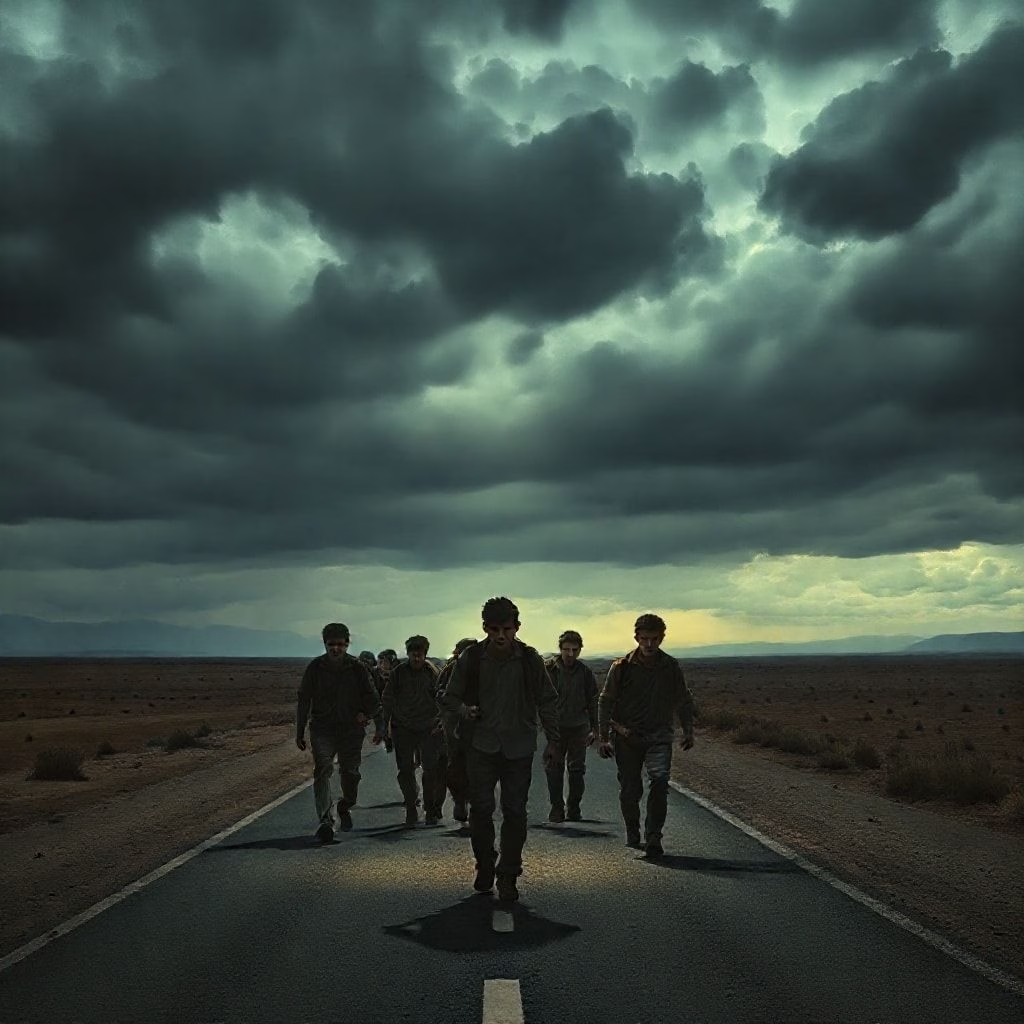The Long Walk: A Dystopian Descent into Survival and Despair

The Brutal Reality of ‘The Long Walk’: A Journey Through Dystopia
Stephen King, the master of horror, has penned tales that chill us to the bone. But beneath the monsters and supernatural occurrences lies a deeper exploration of the human condition. One such example is ‘The Long Walk,’ a novel published under the pseudonym Richard Bachman. This isn’t your typical King story; it’s a brutal, unflinching look at survival, societal control, and the desperate lengths people will go to for a chance at life.
The Premise: A Contest of Endurance… or Death
The core of ‘The Long Walk’ is a horrifying annual contest. One hundred young men, all under a certain age, are forced to participate. The rules are simple, yet unforgiving: they must walk continuously, at a minimum speed of four miles per hour. If they fall below that pace, they receive a warning. After three warnings, they are shot and killed. The walking continues, day and night, until only one survivor remains. That winner is granted anything they desire for the rest of their lives.
A Look at the Grim Contestants
The story primarily follows Ray Garraty, a young man from an unspecified location who enters the Long Walk with a mix of determination and dread. As the walk progresses, he forges alliances and rivalries with other contestants. These young men, stripped of their individuality and reduced to their basic instincts, must grapple with extreme physical and psychological challenges. Exhaustion, pain, and the constant threat of death erode their sanity and force them to confront their own morality.
More Than Just a Walk: Dehumanization and Control
King masterfully uses the framework of the Long Walk to expose the dehumanizing effects of a totalitarian regime. The contestants are essentially pawns in a cruel game, controlled by unseen forces. The story offers a stark commentary on the abuse of power and the erosion of human dignity. The constant pressure, the lack of sleep, and the brutal consequences of failure break down the contestants, turning them into shadows of their former selves.
Themes of Camaraderie and Loss
Despite the inherent cruelty of the competition, ‘The Long Walk’ also explores the bonds that form between the participants. Facing shared adversity, they share stories, offer support, and even display moments of unexpected kindness. These fleeting glimpses of humanity make the story even more poignant, highlighting the resilience of the human spirit in the face of unimaginable suffering. These alliances are fragile, often tested by the harsh realities of the walk, and the constant fear of elimination.
The Cost of Victory
The prize for winning, anything they desire for the rest of their lives, is presented as the ultimate reward. But as the story unfolds, the reader witnesses the immense cost of survival. The physical and emotional scars left by the Long Walk are profound, questioning whether the ultimate prize can truly compensate for the trauma endured. The narrative does not provide a clear answer. Rather, it forces the reader to ponder whether the pursuit of a lifetime of happiness is worth the ultimate sacrifice. The novel makes you question if there can be a true winner in a game where death is the ultimate companion.
A Literary Masterpiece
Written in 1966-67, yet published in 1979, ‘The Long Walk’ stands as a testament to Stephen King’s ability to weave compelling narratives that are both entertaining and thought-provoking. It’s a story that stays with you long after you’ve finished reading it, forcing you to confront difficult questions about human nature, survival, and the true meaning of freedom. The themes resonate as strongly today as they did when the book was first published.
If you enjoy dystopian fiction or are interested in exploring the darker aspects of the human experience, ‘The Long Walk’ is a must-read. Be prepared for a challenging, emotionally charged journey, and a story that will stick with you long after you finish reading.




